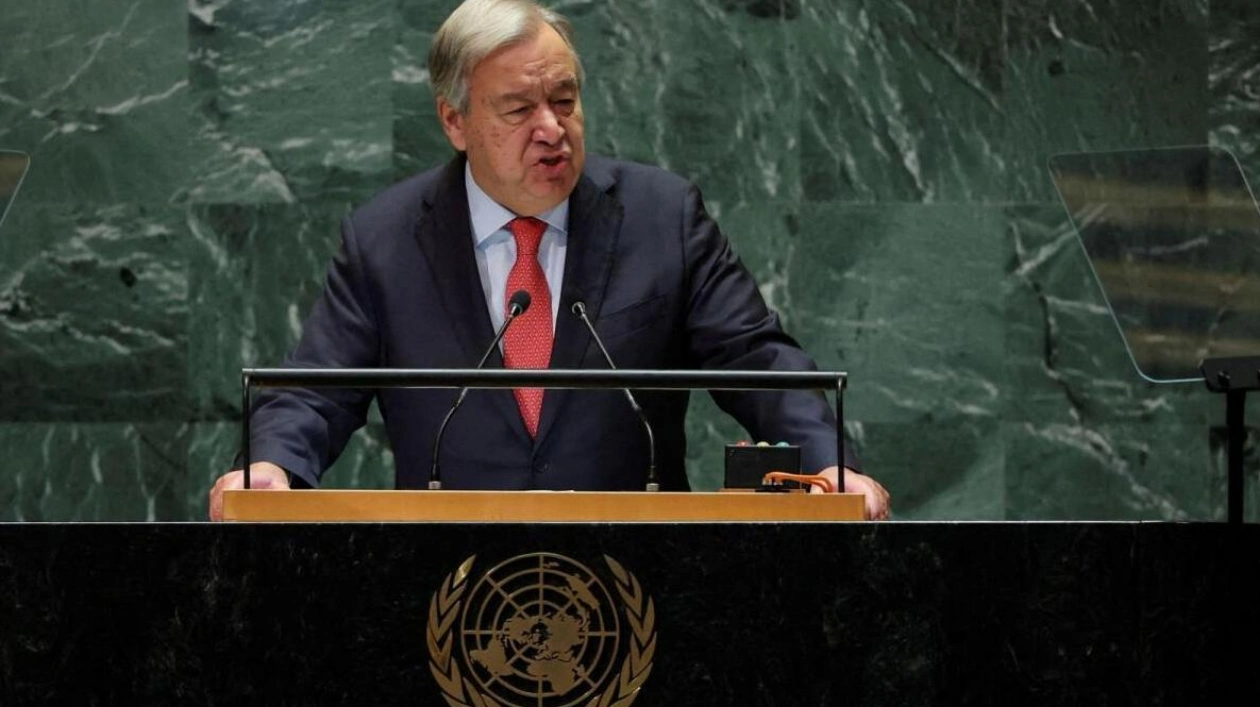United Nations Secretary-General Antonio Guterres addressed the 79th United Nations General Assembly in New York. — Reuters file
Humanity is grappling with an 'existential crisis' due to its relentless destruction of the natural world, UN chief Antonio Guterres cautioned delegates at a major biodiversity summit in Colombia. The 16th Conference of Parties (COP16) to the UN's Convention on Biological Diversity (CBD) must advance the establishment of monitoring and funding mechanisms to meet the 23 goals set in Canada two years ago aimed at 'halting and reversing' nature's decline. The summit, themed 'Peace with Nature,' has been stalled by disagreements over funding modalities. Negotiations are also divided on how to equitably share the profits from digitally sequenced plant and animal genetic data, used in medicines and cosmetics, with the communities of origin. Time is of the essence, with only five years remaining to achieve the 23 UN targets, including protecting 30 percent of land, water, and ocean by 2030.
'Every day, we lose more species. Every minute, we dump a garbage truck of plastic waste into our oceans, rivers, and lakes. This is what an existential crisis looks like,' Guterres warned. A report by nature watchdogs revealed that only 17.6 percent of land and inland waters, and 8.4 percent of ocean and coastal areas, are protected. An update from the International Union for Conservation of Nature's red list found that over one-third of tree species are at risk of extinction, including those providing essential resources like timber, medicine, food, and fuel. More than 46,000 plant and animal species out of over 166,000 assessed are now threatened with extinction.
Guterres emphasized the need to shift from 'plundering... to preserving' nature's resources. Continued destruction will exacerbate 'hunger, displacement, and armed conflicts.' 'Nature is life. And yet we are waging a war against it,' he told COP16 delegates. 'No country, rich or poor, is immune to the devastation caused by climate change, biodiversity loss, land degradation, and pollution. These environmental crises are interconnected.' He urged the 196 countries signed to the UN biodiversity convention to fulfill the commitments made two years ago with the Kunming-Montreal Global Biodiversity Framework, which includes adopting national biodiversity protection plans. Only 36 such plans have been submitted so far. Additionally, 'finance promises must be kept and support to developing countries accelerated,' Guterres said, calling for new public and private pledges.
Countries have so far committed about $400 million to the Global Biodiversity Framework Fund (GBFF), including recent pledges of $163 million from Austria, Denmark, France, Germany, New Zealand, Norway, the UK, and the Canadian province of Quebec. The Kunming-Montreal framework aims for rich nations to mobilize $20 billion annually by 2025 to aid developing countries, with the GBFF being part of this funding. The OECD reported that $15 billion was reached for 2022. COP16 has attracted a record 23,000 registered delegates and 1,200 journalists to Cali, with tens of thousands of activists and residents participating in its 'green zone' for cultural activities, demonstrations, and celebrations. Over 10,000 police and soldiers were deployed to secure the event, which faced threats from a Colombian guerrilla group. No incidents were reported. Guterres joined heads of state from Colombia, Armenia, Guinea-Bissau, Haiti, and Suriname, as well as 115 government ministers and 44 deputies, hoping to 'help us make movement' on unresolved issues, according to CBD spokesman David Ainsworth. The COP16 summit concludes on Friday.
Source link: https://www.khaleejtimes.com






